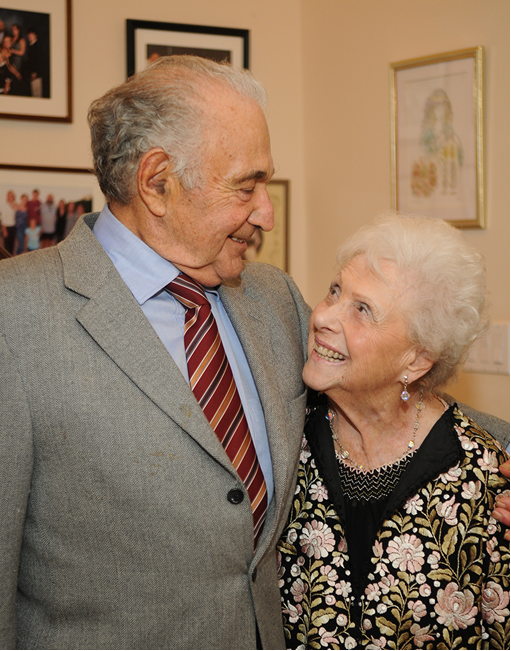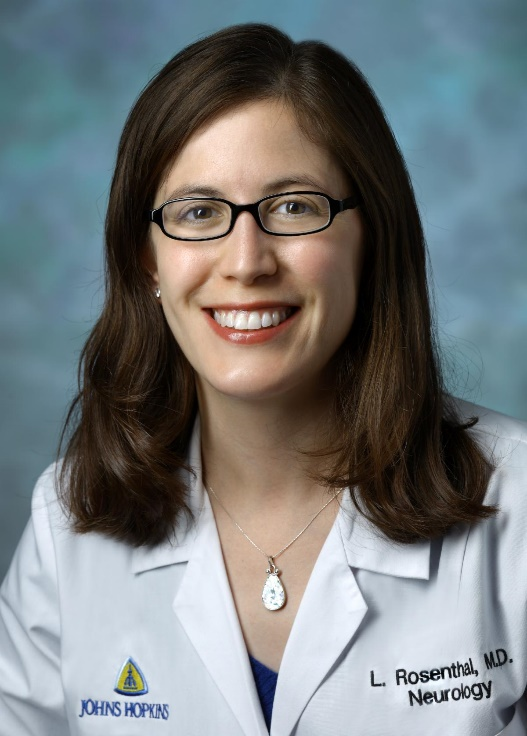 In the summer after his freshman year of college, DANIEL B. GREEN bought a $99 ticket on the Pennsylvania railroad and headed west. Dan stayed with family friends at his first stop in Chicago, where he met their daughter and his future wife, FLORENCE (“Flo”) WEISS. After just a few dates, Dan and Flo were quickly engaged and set the wedding for February 17, 1946.
In the summer after his freshman year of college, DANIEL B. GREEN bought a $99 ticket on the Pennsylvania railroad and headed west. Dan stayed with family friends at his first stop in Chicago, where he met their daughter and his future wife, FLORENCE (“Flo”) WEISS. After just a few dates, Dan and Flo were quickly engaged and set the wedding for February 17, 1946.
Dan and Flo had a loving and timeless marriage which spanned over six decades as they shared in an abundance of commonalities in family heritage, values, and interests. They both knew that they were perfectly matched as a couple. Of the many lessons that she learned from her mother, Flo knew that “the foundation of a successful relationship is respect.” This was embodied in her marriage with Dan and exemplified through their motto: “I’ll meet you halfway.”
In 1947, Flo took a leap of faith and left her family and friends in Chicago to embark on a new journey with the love of her life in Philadelphia. Dan was to work for the family business, Firstrust Bank, and finish his law degree at Temple University.
Dan and Flo accomplished a great deal throughout their marriage, supporting and pushing each other every day to be better and achieve their many goals, including starting a family. They eventually bought a house together and, in 1949, had their first son, Benjamin. They had Richard in 1952, and Arlin in 1955. Flo cared for their home and family while working on her golf game, soon becoming a 16-time club champion, while Dan continued to evolve his role at the bank.
Dan and Flo were quite active in the Jewish community. They were founding members of Main Line Reform Temple where they attended services regularly, and Dan served on the board for ten years. In 2006, through the Daniel B. Green and Florence E. Green Family Foundation (The Green Family Foundation), they dedicated the Green Family Chapel at Main Line Reform in memory of a dear friend. Soon after, Dan got involved with the national organization serving on the board of the Reform Congregation of America for a decade. He was in charge of the fundraising for the Philadelphia area for two years. Without Flo’s love and support, many of Dan’s accomplishments could not have been made possible.
Commitment to Community
The Greens both had longstanding charitable intent from early on in their lives in Philadelphia. As Flo was beginning to get acclimated in her new city, she was introduced by her mother-in-law to the Fellowship Commission of Philadelphia. At the time, this was the nation’s largest human rights organization with a mission to combat anti-Semitism, discrimination, and prejudice in Philadelphia. Additionally, Flo joined Hadassah, the American Jewish Zionist Volunteer Women’s Organization.
Dan also volunteered his time helping the Philadelphia settlement movement. He supported Federation of Neighborhood Centers (FNC Philadelphia), an organization formed in 1906 with the goal of creating equal opportunity for children, adults, seniors, and families by building and rebuilding safer neighborhoods in order for them to prosper in their communities.
Soon after, Dan got involved with the precursor to the Jewish Federation of Greater Philadelphia, an organization with a comparable mission to FNC. For four years, Dan was the head of the Philadelphia chapter, an association that the Green family still supports to this day.
Given their reputable relationship with the community and a fierce desire to better serve the greater Philadelphia area and beyond, Dan and Flo established the Daniel B. & Florence E. Green Family Foundation in 2005. The Green Family Foundation is dedicated to cultivating and investing in innovative and impactful solutions that foster inclusive and interconnected communities so that individuals and communities flourish and reach their full potential. It was Dan and Flo’s aspiration for the Green Family Foundation to continue to serve the community for generations to come.
Their wishes are now coming to fruition as the second and third generations of the Green family are committed to and deeply involved in the work of the Foundation. The members of the Green family are devoted to making “PopPop Dan” and “Nanny Flo” proud by living out their legacy of working together as a family for the benefit of their beloved community.
In addition to continuing Dan and Flo’s support of FNC, the Jewish Federation of Greater Philadelphia, and Federation Housing, the Green Family Foundation also has a longstanding philanthropic partnership with City Year Philadelphia, administers the Samuel A. Green Scholarship Program, which recognizes a graduating high school senior in the Greater Philadelphia or Lehigh Valley area who demonstrates leadership potential and a fierce commitment to making a substantial impact in their community, and more recently, began supporting the Johns Hopkins Ataxia Center.
Benjamin, Barbara and Charles Green
Benjamin Green is the eldest son of Dan and Flo, and is a patient of Dr. Rosenthal. He is married to Barbara, and they recently relocated from Calabasas, California, to reside full-time in Annapolis. This allows Ben and Barbara to be closer to their adult son, Charles, who also lives in Annapolis, and have easy access to medical care at Johns Hopkins.
Ben inspired the Green family’s interest in and commitment to the work of Dr. Rosenthal and the Johns Hopkins Ataxia Center, and Barbara has been an incredible advocate for us.
Richard J. Green
Richard is the middle son of Dan and Flo, and currently serves as Chairman and CEO of Firstrust Bank. He is also a minority owner of the Philadelphia Eagles NFL team, after losing a bid to buy the team in 1985, and has ownership stakes in hotel properties in the Turks and Caicos.
After graduating from Haverford School in 1969 where he played football and lacrosse, Richard earned undergraduate degrees in economics and political studies from Tufts University, and then an MBA/JD from Southern Methodist University.
In addition to serving as Trustee of the Green Family Foundation, Richard currently serves on the Board of Trustees of Penn Medicine, the Board of the Jewish Federation of Greater Philadelphia, and the Executive Board of Federation Housing.
Richard has three children – Brittany and Julia (bios below), who both work for the Green Family Foundation, and Jeffrey, who works for Firstrust Bank.
